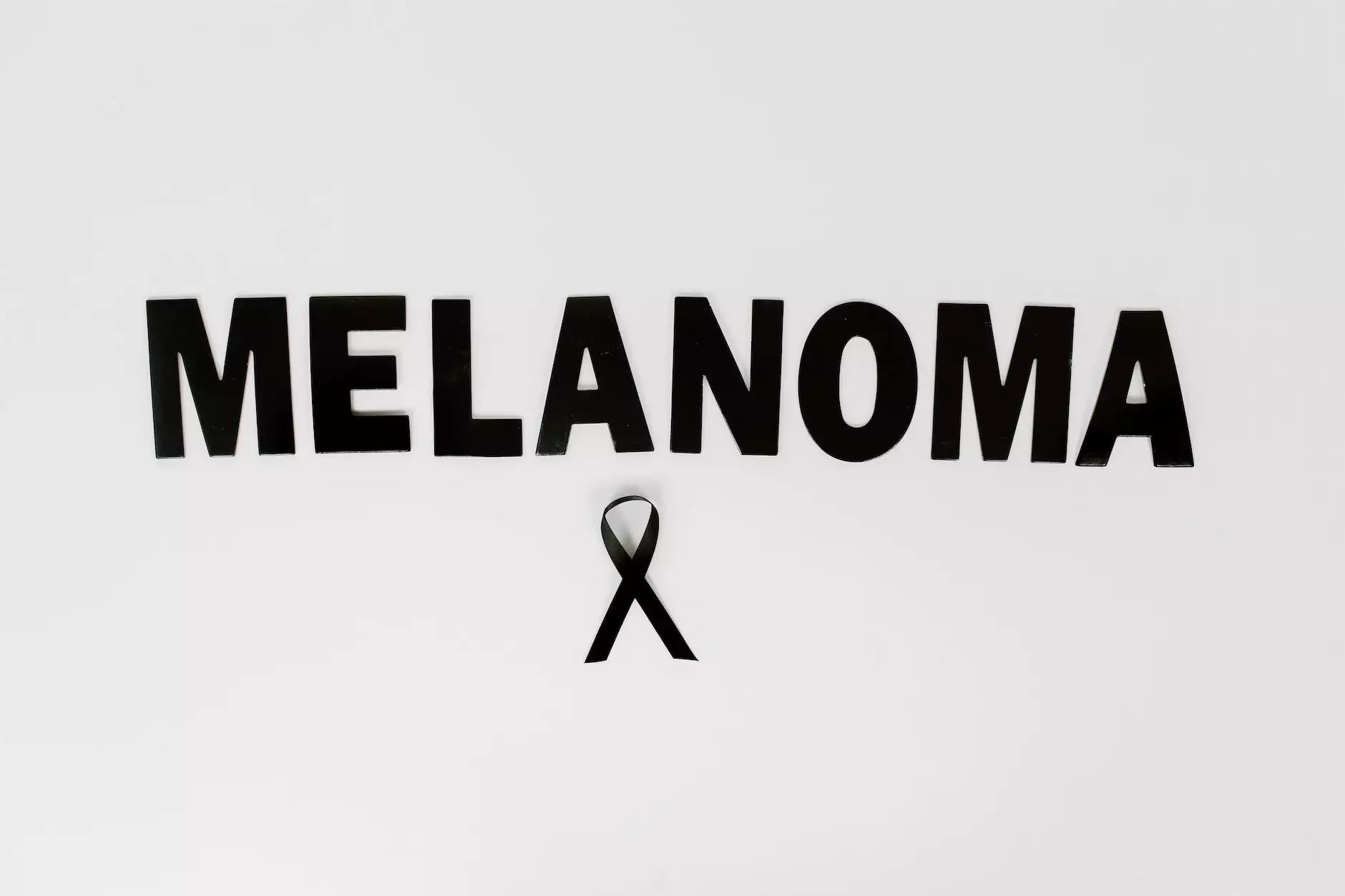Stage IV Melanoma — Cancer Blog

Understanding Stage IV Melanoma
Stage IV Melanoma is an advanced form of skin cancer that requires immediate attention and comprehensive treatment. At Sibel Blau, we understand the challenges and uncertainties faced by individuals diagnosed with Stage IV Melanoma. Our Cancer Blog aims to provide you with the most up-to-date and detailed information, ensuring you have the knowledge needed to make informed decisions about your health.
Key Insights on Stage IV Melanoma
Stage IV Melanoma, also known as metastatic melanoma, occurs when cancer cells have spread from the initial site of the skin to distant lymph nodes, organs, or other tissues. It is a serious diagnosis, but advancements in medical research and treatments have provided hope for better outcomes.
Causes and Risk Factors
While the exact causes of Stage IV Melanoma are not fully understood, several risk factors have been identified. These include:
- Excessive UV exposure
- Prolonged sun exposure
- Fair skin and light-colored eyes
- Family history of melanoma
- Genetic factors
- Age (older individuals are at a higher risk)
Symptoms and Diagnosis
Recognizing the symptoms and seeking early diagnosis is crucial for effective treatment. Common symptoms of Stage IV Melanoma may include:
- Changes in the size, shape, or color of existing moles
- The appearance of new moles or skin growths
- Irregular borders or uneven pigmentation
- Bleeding, itching, or oozing of moles
- Enlarged lymph nodes
- Unexplained weight loss or fatigue
If you experience any of these symptoms or suspect you may have Stage IV Melanoma, it is crucial to consult a healthcare professional for further evaluation and diagnosis.
Treatment Options for Stage IV Melanoma
Successfully managing Stage IV Melanoma requires a comprehensive treatment approach. The choice of treatment depends on various factors, including the stage of cancer, overall health, and individual preferences. Possible treatment options may include:
1. Surgery
Surgical interventions aim to remove the tumor and nearby lymph nodes. Surgeons may perform procedures such as:
- Wide local excision
- Lymph node dissection
- Sentinel lymph node biopsy
2. Immunotherapy
Immunotherapy stimulates the body's immune system to recognize and destroy cancer cells. It may involve the use of:
- Checkpoint inhibitors
- Interleukin-2 (IL-2)
- Adoptive cell transfer
3. Targeted Therapy
Targeted therapy focuses on specific genetic mutations within cancer cells. It may involve medications that inhibit the growth of cancer cells, such as:
- BRAF inhibitors
- MEK inhibitors
- Combination therapies
4. Radiation Therapy
Radiation therapy utilizes high-energy rays to kill cancer cells and shrink tumors. It may be administered externally or internally, depending on the case.
5. Clinical Trials
Clinical trials offer potential access to innovative treatments and therapies that are still undergoing research and development.
Support and Lifestyle Management
At Sibel Blau, we understand that managing Stage IV Melanoma goes beyond medical treatments. We offer a range of supportive services and resources to help individuals lead a fulfilling life while navigating this challenging journey. Our support includes:
Emotional Support
Our team of compassionate professionals is here to provide emotional support, counseling, and resources for both individuals with Stage IV Melanoma and their loved ones.
Education and Information
Stay updated with the latest advancements in melanoma research and treatment options through our Cancer Blog and educational resources.
Nutritional Guidance
Proper nutrition plays a crucial role in overall health and wellbeing. Our expert nutritionists can help develop personalized dietary plans to support your journey.
Physical Activity
Engaging in regular physical activity, as recommended by your healthcare team, can positively impact your overall health and reduce the risk of complications.
Community and Support Groups
Connect with others going through similar experiences by joining our community and support groups. Share stories, insights, and find comfort in knowing you are not alone in this battle.
Conclusion
Stage IV Melanoma is a complex and challenging diagnosis, but with the right information, support, and treatment, outcomes can be improved. At Sibel Blau, we are committed to providing you with the most comprehensive resources and support to help you on your journey towards better health and well-being. Stay informed, seek professional guidance, and never lose hope.




